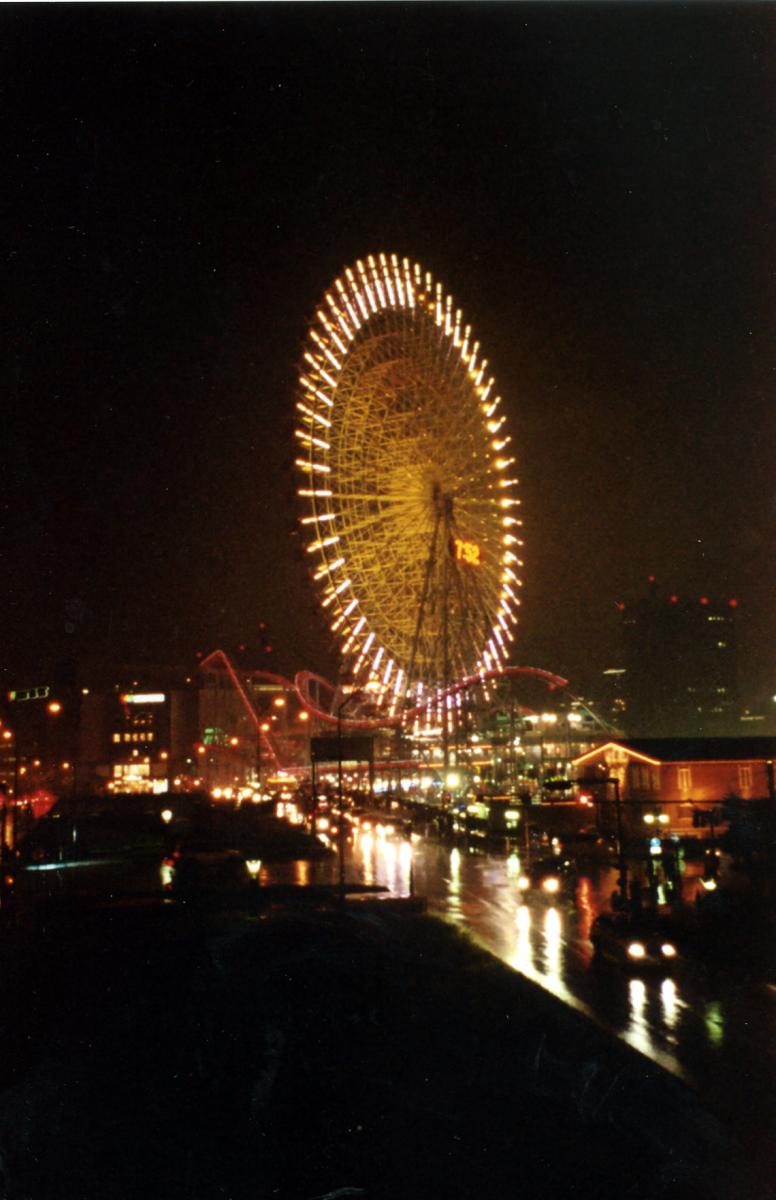By CHRIS KELSEY

Each day during my week in Yokohama I played a game with Yoshida and Tanaka. They were responsible for the cleanliness of rooms on at least the 14th floor of a towering, fan-shaped, waterfront hotel. I was there for a geotechnical engineering conference.
I don’t like to leave my room a mess in hotels. It’ll be cleaned, sure; but I don’t take that as an invitation to complicate the lives of those who clean the room. But Yoshida and Tanaka were so exacting in their orderliness that I could not help but test the finer limits.
A great number of my industry colleagues live out of suitcases far more often than I do, and they do it, nearly always, in far less serene locations than a nicely rated hotel overlooking the gray, sheltered waves of Yokohama’s bay.
My colleagues are people who crawl into the sewers of Phoenix or Singapore to inspect failing pipe liners. They accept 36 hours notice to drop whatever they are doing, wherever in the world they might be, and head to a gold mine in Peru to analyze the integrity of a pregnant liquor trench. They build artificial islands in Dubai.
When I see these colleagues, once every year or two, it is in a nice hotel in a beautiful city where I simply learn about everything they’ve been dirtying their boots with and everything that has lodged under their nails.
Yoshida and Tanaka took care of us, though I’m certain I was the only one playing this game with them.
The work days at these events are long, sometimes running 18 hours. Pre-breakfast meetings are followed by breakfast meetings. Then, an opening lecture, technical sessions, side meetings in a hallway, lunch (if you’re lucky), more technical sessions and side meetings, etc. You confer with co-workers and parcel up the evening. Maybe you have a client or potential client dinner. Maybe there’s a reception. Nearly always, there are post-dinner/reception meetings, none of which are official but which provide an essential, trusted sharing of information and no shortage of levity. Finally, on the way back to your room, ready to shed your work clothes and collapse, you find it nearly impossible to avoid additional, informal gatherings in the hotel bar.
At the end of these nights, I would find my room immaculate to the point of being disorienting. There was the sense of someone always hiding in there. Though I had hardly occupied it, it was just too smooth and clean.
I had tidied up and made the bed each morning, but it was clear that Yoshida and Tanaka always redid it. I left books and coins on the windowsill – stacked them, even – obscured by the gauzy curtain beneath the heavier blackout curtain, but when I returned the books and coins had been restacked and centered, with the largest books and coins at the base on up through to the smallest.
I began to put things slightly out of alignment to see how finely tuned Yoshida and Tanaka were to my imperfections.
One morning I fussed about my tie and shirt combination. Instead of placing the rejected items in the closet, as I normally would have, I left things on the spare bed. I later found these items folded neatly on the edge of the bed.
The only remark on the room was a simple card left daily and signed by whomever had cleaned.
YOSHIDA.
One morning, between breakfast meetings and a lecture, I hurried back to my room. I folded unused clothes but left them on the edge of a made bed. I closed all but one dresser drawer flush, leaving it only slightly cracked. I folded dirty clothes in the luggage closet and left them atop a closed suitcase. I restacked coins and books. I wiped up water drops around the sink, draped the rag to the side so the room looked lived in but orderly. I arranged toiletries in clockwise square.
When I returned quite late, the toiletries had been rearranged in a close, sequence-inspired line, as if marshaled for duty. Some business cards I’d neglected on the desk had been stacked, centered, and repositioned in a space between my computer and the edge. The drawers were flush. The books and coins were perfect. Clothes had been refolded and beds remade. The washcloth had been replaced and reset.
TANAKA.
Each morning I tried something new. I moved a hotel-branded pen five to ten degrees out of alignment on the memo pad by the phones. No dice. Yoshida caught it, as if she cared for the room with the aid of a protractor.
A colleague, to whom I’d confessed my idiocy, suggested I leave one shirt unfolded and another folded – but not with skill – to see if both would be redone or if the lesser was simply made to match the mildly better job.
We knew. So did Tanaka. She refolded them, perfectly.
A crooked wastebasket, two receipts on the desk, the position of my shampoo in the shower: Yoshida and Tanaka had an orderly answer for everything and new answers for the things I hadn’t noted I may have touched.
It got so that I did things like wipe out and dry the soap holder, I even DRIED THE SOAP, just to see if I could detect whether they let one inch of the room go unchecked.
No deal. They had me at every turn and left a happy mark on my memory, though it was clear I would be cleaned from theirs.
Chris Kelsey is a technical writer and editor in Saint Paul, Minnesota. Time permitting, he works on fiction.
Photo by author.




